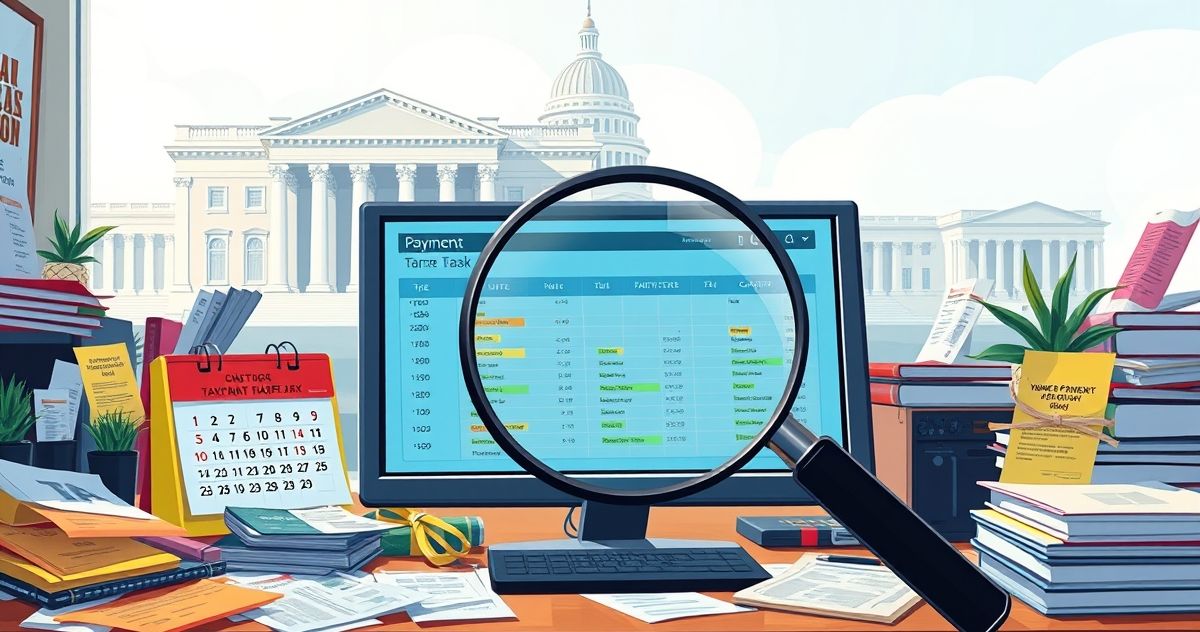Understanding Taxpayer Payment History
The concept of Taxpayer Payment History is pivotal in the world of taxation. At its core, it represents a comprehensive record of all tax-related payments made by an individual or a business entity to the government. Delving deeper into its facets reveals its importance in maintaining accuracy and ensuring compliance with tax laws.
What is Taxpayer Payment History?
Taxpayer Payment History is essentially an account summary which details the chronological sequence of tax payments over time. This includes not only income tax but also other taxes like estimated taxes, property taxes, and any penalties or interest payments. These records are maintained by the tax authorities, such as the IRS in the United States, and are also available to the taxpayers themselves for cross-verification and record-keeping.
Primary Purpose of Taxpayer Payment History
The primary purpose of maintaining a Taxpayer Payment History is to provide both the taxpayer and the tax authority with a clear and concise record that can be used for various purposes. These purposes include verifying payment claims, resolving disputes, and auditing taxpayer accounts. For taxpayers, having an accurate payment history is crucial for budgeting, financial planning, and ensuring timely payments to avoid penalties.
Key Features and Components
Key components of a Taxpayer Payment History include:
- Payment Dates: The specific dates when each payment was made.
- Payment Amounts: The exact amount of each payment, including partial payments if applicable.
- Payment Method: Details on whether the payment was made via electronic transfer, check, or another method.
- Payment Type: Whether the payment was for a specific tax period, penalty, interest, or estimated tax.
- Reference Numbers: Unique identifiers associated with each transaction, aiding in easy retrieval and reconciliation.
- Balance Due/Refund: Shows if there is any remaining balance due or refund owed after the payment.
Relevant Filing or Compliance Requirements
Ensuring accurate and timely tax payments is a statutory requirement in many jurisdictions, underscoring the importance of maintaining an up-to-date Taxpayer Payment History. Taxpayers are typically required to file annual returns, and these returns must reconcile with the payment history to ensure accuracy and compliance. Discrepancies between the payment history and filed returns can prompt audits or penalties.
Penalties or Consequences for Non-compliance
Failure to maintain an accurate payment history or rectify discrepancies can lead to several penalties and consequences:
- Monetary Penalties: Additional charges may be levied for underpayment or late payment of taxes.
- Interest Charges: Interest can accrue on unpaid amounts, increasing the total due.
- Legal Actions: Persistent non-compliance can lead to legal action, including garnishments or liens on property.
- IRS Audits: Inconsistent or inaccurate payment histories can result in audits, requiring taxpayers to justify discrepancies.
Importance in Tax Resolution and Financial Compliance
Maintaining a clear Taxpayer Payment History is crucial in both tax resolution processes and general financial compliance:
- Tax Resolution: Payment history can act as a proof, helping to negotiate with tax authorities for resolving disputes or arranging payment plans.
- Financial Compliance: Regular reviews help ensure that tax accounts are accurate and all tax obligations are met timely, bolstering one’s financial health.
- Strategic Planning: Analyzing past payment trends can help make informed decisions regarding future payments, tax-saving opportunities, and financial planning.
Conclusion
In summary, Taxpayer Payment History serves as an essential tool for both taxpayers and tax authorities, providing a reliable record that ensures transparency and facilitates the efficient administration of tax laws. By understanding and utilizing this history, taxpayers can safeguard themselves against common tax issues such as discrepancies in filing, unintended penalties, and compliance difficulties.
Therefore, it is imperative for every taxpayer, whether individual or corporate, to consistently track and verify their Taxpayer Payment History, keeping abreast of all their tax obligations to maintain financial stability and compliance.

